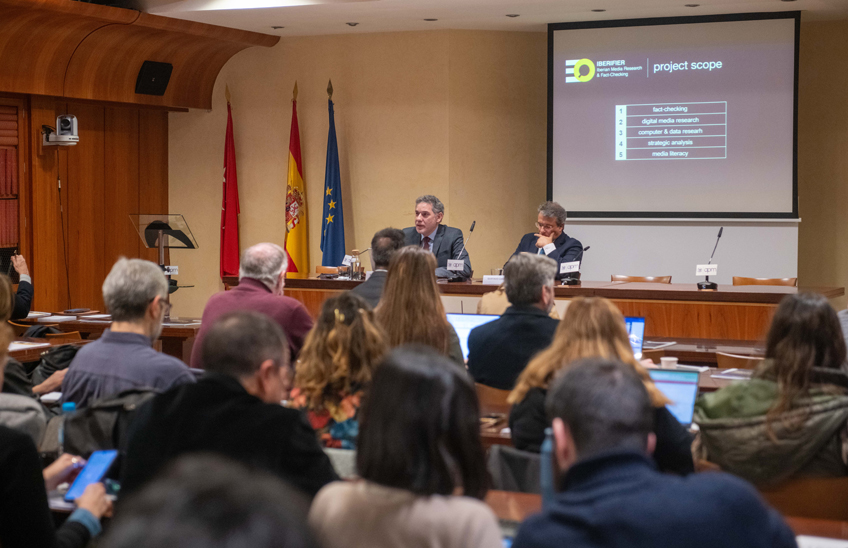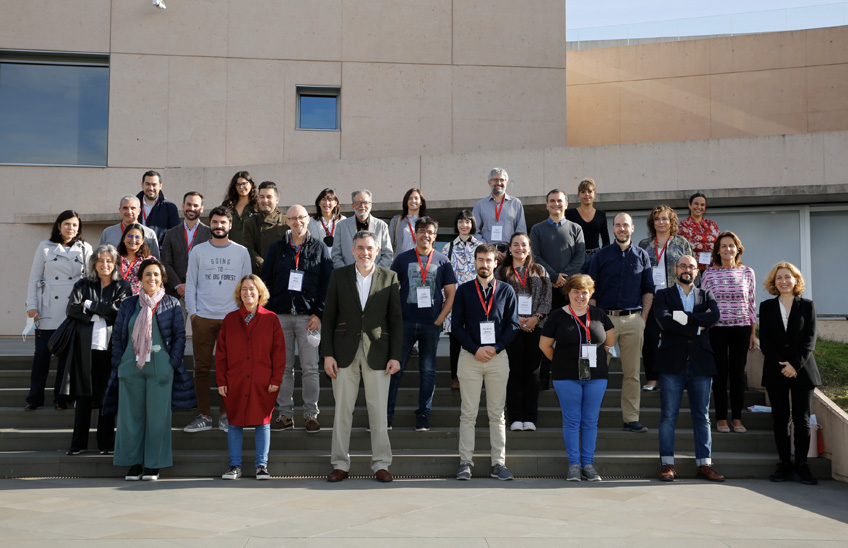Emotional connection, power and informational impact: three reasons why disinformation prevails in political content
A new report of Iberifier, Iberian observatory against disinformation coordinated from the School de Comunicación, highlights the importance of having a solid legal framework to combat disinformation.

PhotoCedit/
10 | 11 | 2023
A new report of the Iberifier observatory, coordinated from the School of Communication of the University of Navarra, analyzes the legal keys to combat disinformation in Spain and Portugal, and highlights the importance of a solid legal framework to fight against the spread of false information. According to Ana Azurmendi, professor of Information Law and one of the researchers of this observatory promoted by the European Commission, "political news is very emotional for many citizens, which favors disinformation".
Azurmendi points out that "disinformation is more frequent in political issues than in other matters, due to a mixture of psychological factors, the nature of Public discourse and the dynamics of the media". purpose According to this researcher, "influence or persuasion are essential features of political communication, something that facilitates the generation of hoaxes, with the aim of changing political opinions or even undermining confidence in institutions". Azurmendi stresses that "the functioning of social networks, based on capturing the emotions and behavior of users, paves the way for the large-scale dissemination of disinformation".
The report 'Legal and political aspects of disinformation in Portugal and Spain' has been elaborated in the framework of the Iberifier observatory, a forum of programs of study against disinformation with headquarters in the School of Communication of the University of Navarra and formed by about twenty centers of research, universities and verification agencies. Researchers from Spain and Portugal have studied the main causes of the increase in disinformation, as well as the legislation -partial, in most cases- that protects citizens against this phenomenon.
The report highlights that, although both countries have implemented measures to combat disinformation, such as the creation of specialized analysis units or the promotion of media literacy activities, the complexity of the political communication environment makes it difficult to combat disinformation.
The report analyzes several examples of political disinformation. As far as Spain is concerned, it delves into the cases of the hoaxes generated around the so-called "only yes is yes" law, the disinformation during the last local and general elections, and the hate campaigns against immigration.
Iberifier's analysis detects dispersion in national and European laws that seek to regulate disinformation phenomena. In the case of Spain, legislation on these aspects is divided between the Penal Code, the General Audiovisual Law and the Law on Protection of data. For its part, in the European Union there are specific legal rules against disinformation in the recent Digital Services Act. This report is included in other publications of the Iberifier observatory that analyze the phenomenon of disinformation from aspects as diverse as geopolitics, Economics, technology or media literacy.
Iberifier, Observatory for disinformation in Spain and Portugal
Iberifier is a project funded by the European Commission that brings together 70 researchers from 23 institutions: twelve universities, five verifiers and news agencies, and six other multidisciplinary research centers, from Spain and Portugal, led from the School of Communication of the University of Navarra. It is framed in the strategic line of research "Society and communication in the digital environment" of the Strategy 2025 of the University of Navarra, whose goal is to study the phenomena, processes and effects of the Digital Communication in its multiple dimensions: social, political, economic and cultural.




